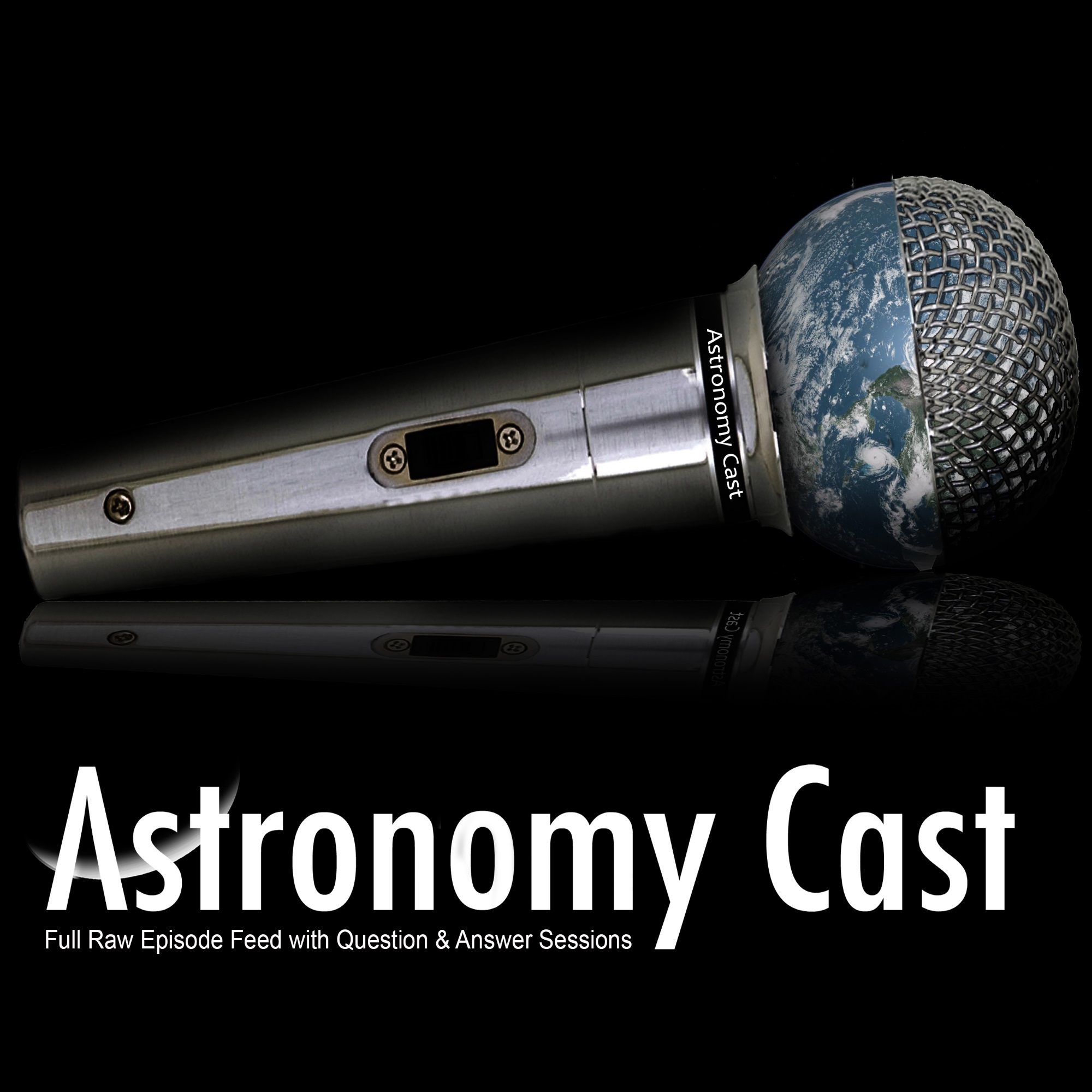
365 Days of Astronomy - Weekly Edition
The weekly podcast from the International Year of Astronomy 2009. This podcast comes out weekly and includes each daily episode of the 365 Days of Astronomy Podcast.
- Update frequency
- every 7 days
- Average duration
- 55 minutes
- Episodes
- 329
- Years Active
- 2017 - 2025

Ep. 465: Exploiting Interfering Light
Electromagnetic radiation, also known as "light" is pretty handy for astronomers. They can use it to directly and indirectly observe stars, nebula, planets and more. But as you probably know, light c…

Ep. 464: Why the Hype over an Exorock?
Astronomers this week announced that they had discovered an asteroid or comet on a trajectory that brought it from outside the Solar System? Is this the first case of an object from deep space? And w…

Ep. 463: Pareidolia and the Moon
The man in the moon, the pyramids on Mars. Every cloud, ever. Humans have a tendency to pattern match when they're looking around the Universe - it's called pareidolia. What causes this behavior, and…

Ep. 462: Modeling the Weather
Have you noticed that weather forecasting has gotten much better in the last few years? Thanks to weather satellites, weather stations, and better forecasting techniques. How do scientists predict th…

Ep. 461: Measuring the Weather with Satellites
What's the weather doing? Is it going to rain today? How much? What about temperatures? We depend on modern weather forecasting, thanks, in part to the vast network of weather satellites. What instru…

Ep. 460: Earth from Afar: Remote Sensing
The space age has given us the ability to look at every corner of the globe in every wavelength. It's revolutionized our ability to predict the weather, keep track of environmental damage, and watch …

Ep. 459: Arecibo Observatory
The iconic Arecibo Radio Observatory has been a mainstay in science and science fiction. This Puerto Rico-based radio telescope was already in an uncertain level of funding. But now with the damage f…

Ep. 458: The Science of Cassini
And now Cassini’s gone. Smashed up in the atmosphere of Saturn. But planetary scientists are going to be picking through all those pictures and data for decades. Let’s look back at some of the scienc…

Ep. 457: Why Did Cassini Have To Die? In Memoriam
It's time to say goodbye to an old friend, NASA's Cassini spacecraft, which has been orbiting within the Saturnian system since 2004. But why does a seemingly healthy spacecraft and mission need to c…

Ep. 456: Pluto Revisited
This week, we return to our starting point, where Astronomy Cast began: Pluto. 11 years on, we have a whole new appreciate for the dwarf planet Pluto. We've visited it, probed it and taken pictures. …

Ep. 455: Your Practical Guide to Colonizing the Milky Way!
This episode was recorded live in St. Louis, MO at the Astronomy Cast Solar Eclipse Escape 2017. Listen as we discuss how humans might be able to colonize the Milky Way!

Ep. 454: Things We're Looking Forward To
As we wrap up season 10 of Astronomy Cast, we look forward to all the instruments, missions and science results on the distant horizon. Think astronomy is exciting already? Just you wait.

Ep. 453: Favorite Things We've Done These 10 Years
10 years of Astronomy Cast... wow. It's been a long, fun journey. What are some of our favorite episodes and adventures over the decade we've been doing this show.

Ep. 451: When Can I Buy My Ticket To Space?
Like most of us, you probably want to know what it would be like to travel to space. Maybe not to live, but just to visit. You want to be a space tourist. Good news, there are a bunch of companies wo…

Astronomy Cast Ep. 450: Inflatable Habitats
In order to live in space, we'll need to live in a habitat that simulates the temperature, pressure and atmosphere of Earth. And one of the most interesting ideas for how to do this will be with infl…

Astronomy Cast Ep. 449: Robots in Space!
When you think of a robot, you're probably imagining some kind of human-shaped machine. And until now, the robotic spacecraft we've sent out into space to help us explore the Solar System look nothin…

Astronomy Cast Ep. 448: Prepping for the Eclipse
On Monday, August 21, 2017, there's going to be a total eclipse of the Sun, visible to path that goes right through the middle of the United States. You should be making plans to see this, and we're …

Ep. 447: Animals in Space Pt. 3: Dogs, Monkeys and More
For the final episode in our 3-part episode about animals in space, we look at the largest animals to go to orbit. And I'll just warn you now, this is going to be a really sad episode.

Ep. 446: Animals in Space Pt. 2: Mice and Other Small Animals
Last week we talked about how the smallest creatures behave in space, but now we move up in size a little to small animals, like mice. What missions have they flown on, and how does microgravity affe…
